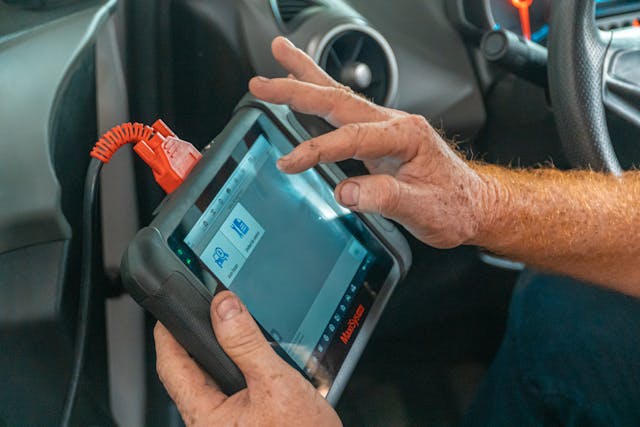
From the Scottish Highlands to the streets of London, vehicles across the UK are becoming more advanced, efficient, and tech-heavy. With this evolution comes an increased reliance on electronic systems, particularly the Engine Control Unit (ECU) and various other digital components. As car owners and fleet managers alike face challenges with these sophisticated systems, the demand for ECU repair and car electronics repair has surged in recent years.
In this article, we explore why these services are now indispensable for vehicle maintenance in the UK, how they impact your vehicle’s performance, and what UK motorists should look for when choosing a professional repair centre.
Understanding the Role of Vehicle Electronics
Gone are the days when car repairs primarily involved spark plugs, carburettors, and basic diagnostics. Today’s vehicles are equipped with dozens of sensors and interconnected modules, all of which feed data into the ECU — the brain of modern cars.
The ECU is responsible for managing critical functions such as fuel injection, ignition timing, and emission controls. When it malfunctions, the impact can range from reduced fuel efficiency to engine failure or complete breakdown.
But the ECU is just one piece of the puzzle. Vehicles also rely on electronic systems for:
- Power steering
- Anti-lock braking systems (ABS)
- Parking sensors and reversing cameras
- Climate control
- Airbag deployment
This complexity means that general mechanical fixes are no longer sufficient. It takes specialist knowledge in car electronics repair to resolve issues efficiently and safely.

Common Signs Your Vehicle Needs ECU Repair
While some electronic issues may result in immediate breakdowns, others develop slowly and subtly. Here are the key signs UK drivers should watch out for:
- Check Engine Light – This is one of the most common early warnings. A diagnostics scan can reveal ECU-related trouble codes.
- Engine Misfiring or Stalling – A faulty ECU can cause inconsistent engine performance, especially during acceleration or idling.
- Poor Fuel Economy – If your fuel consumption increases without any obvious reason, your ECU might be reading incorrect sensor data.
- Starting Issues – A failing ECU may not send the proper signals for ignition, causing the vehicle to crank but not start.
- Inconsistent Gear Shifting – Automatic gearboxes depend heavily on electronic inputs. ECU faults can result in jerky or delayed shifts.
When these symptoms appear, timely ECU repair is crucial to prevent more serious damage.
The Rise in Demand for Car Electronics Repair in the UK
Over the past decade, UK roads have seen a significant increase in hybrid, electric, and high-end vehicles — all of which are heavily reliant on advanced electronics. As these cars age, electronic faults have become one of the most reported reasons for garage visits.
Moreover, environmental policies like the Ultra Low Emission Zone (ULEZ) in London and other Clean Air Zones across the UK push drivers to maintain their engines in optimal condition. Faulty electronics often lead to increased emissions, which could result in fines or MOT failures.
As a result, more UK drivers are turning to trusted specialists for car electronics repair, knowing that traditional garages may lack the tools or expertise to deal with complex ECUs or CAN bus systems.
ECU Repair vs Replacement: What’s More Cost-Effective?
When an ECU starts to fail, many assume that full replacement is the only option. However, ECU repair is often more cost-effective, especially for vehicles that are more than five years old.
Reputable UK-based repair centres use high-tech diagnostic equipment to identify the root cause and fix it at the circuit or component level. This can include:
- Repairing broken solder joints
- Replacing damaged capacitors or resistors
- Reflashing the corrupt firmware
- Updating or cloning ECU software
In most cases, repair costs are significantly lower than a brand-new ECU, which can cost anywhere from £500 to over £2,000, depending on the make and model.
Choosing the Right Specialist for Car Electronics Repair
Not all repair centres are created equal, especially when it comes to modern vehicles with sensitive electronics. Here’s what to look for when selecting a car electronics repair provider in the UK:
- Certification and Training: Look for technicians who are IMI-certified or have manufacturer-specific training.
- Advanced Diagnostic Tools: The centre should have dealer-level diagnostic tools to accurately test and reset ECUs.
- Warranty on Repairs: A trustworthy provider will offer at least a 6- to 12-month warranty on all ECU repair services.
- Positive Reviews and Case Studies: Check their website or Google reviews to see real-world examples of successful repairs.
- Experience with Your Vehicle Brand: Some centres specialise in German, Japanese, or luxury cars — make sure they’re familiar with your make.

ECU Repair in Fleet and Commercial Vehicles
The importance of ECU repair isn’t limited to private cars. For logistics companies, taxis, delivery services, and emergency fleets across the UK, a faulty ECU can mean downtime, delayed services, and financial loss.
Fleet operators increasingly partner with specialist centres for regular diagnostics and pre-emptive maintenance. This helps to avoid costly breakdowns and ensures vehicles remain compliant with emission standards and safety regulations.
Moreover, since these vehicles often log tens of thousands of miles each year, car electronics repair becomes a recurring necessity rather than a one-off event.
Conclusion
Whether you’re a weekend driver, a daily commuter, or managing a fleet, the electronics in your vehicle play a critical role in its reliability and performance. Ignoring signs of electronic failure can lead to major complications—both financially and mechanically.
Fortunately, UK motorists now have access to a growing number of professional services that specialise in ECU repair and car electronics repair. By choosing the right repair centre, you not only save money but also extend the lifespan of your vehicle and improve road safety.
As vehicles become smarter, repairs must become smarter too—and that’s where skilled electronic specialists come in.